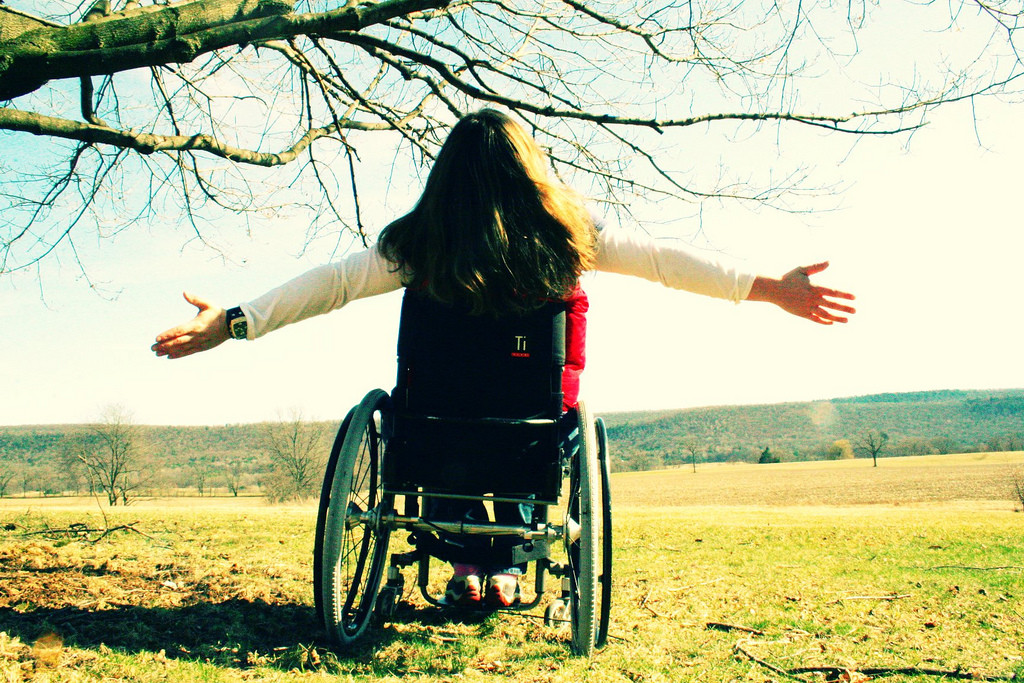10 Ways On How to Overcome Disability Barriers

Having a disability can be really hard, but it doesn’t mean it’s the end of the road. There are many ways to accept your circumstance and overcome disability barriers. We were all brought to this earth for a reason and have the ability to do whatever we want with our lives. The truth is that everyone struggles in their everyday life in one way or another. It’s about staying positive and making the best of what you have.
Here’ how you can overcome disability barriers in 10 steps……..
1. Stay focused on the positives instead of the negatives. No matter what obstacles have come my way, staying positive has allowed me to overcome them. When I was in tenth grade, I had to miss 29 days of school in order to have major back surgery, where seven vertebrae were removed due to spinal cord compression. I knew that the back surgery was crucial and I found a way to make up the school work that I had missed. Staying positive allowed me to keep up with my classmates and graduate on time.
2. Don’t ever give up. When I first moved out to Los Angeles after growing up in Boston, I went on one hundred job interviews before starting my current position. If I wasn’t right for those one hundred positions, I knew there still had to be an opportunity out there for me.
3. Challenge yourself and try new things every day. As soon as I wake up in the morning, I encounter a new challenge — whether it’s trying to reach something high in the kitchen or volunteering to participate in an optional pitch lunch at work. As long as you try, that’s all that matters in the end.
4. Each day you should ask yourself if you’re happy. If there’s something that’s making you unhappy, you should find a way to make change. I find myself unhappy whenever I’m surrounded by negative people. Now I’m more cautious of the people with whom I surround myself.
5. Smile. A smile goes a long way. Whenever people are staring or laughing at me for whatever reason, keeping a smile on my face causes them to wonder why I don’t react.
6. Don’t compare yourself to others and find time to celebrate your little accomplishments. I always set my own goals. Although we all wish we could get there as fast as it seems others have, I’ve found ways to enjoy the journey and celebrate each little success on the way. After missing almost a whole season on the youth soccer team, due to my back surgery during the spring of my sophomore year in college, I found a way to play in the last game of the season. I never scored a goal but participating was just as important to me. After long recovery, this was a huge accomplishment for me.
7. Be polite and stay calm with obnoxious people. Even if somebody makes fun of you, there are ways to turn around the situation. When someone makes fun of you, keep your dignity. Be aware that heckler has just destroyed his or her reputation. A sarcastic remark or two can help – judge your timing and the reactions of people around the heckler. Be funnier than they are, especially in public situations with plenty of witnesses.
8. Let yourself grieve and go through all five stages of grief about your disability. Seek real support from therapists, counselors and trusted friends or family members. Learn to judge who’s genuinely supportive and who’s pitying – pity is just another flavor of humiliation and usually covers up the other’s terror of winding up in your situation. Do your best not to take out your grief on the people in your life who are genuinely trying to help, even if they’re not good at it.
9. Accept your disability. This is the most difficult part as it can be very discouraging. Accept that you may never walk, hear or see again and that you can still enjoy life. If your disability can be changed with physical therapy and treatment, seize the day and fight it every day. Accepting your disability means grieving the loss of a normal status with no stigma against you and a life without enormous inconvenience.
10. Do your best. You didn’t have a choice about being disabled but how well you live with it is a choice, every day. It’s much more important to pat yourself on the back for your successes than to beat yourself up for failures . Don’t judge yourself by other people, learn what you can really do and take any progress as something to build on.





